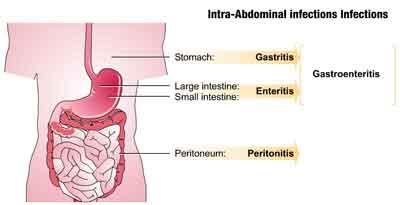- Home
- Editorial
- News
- Practice Guidelines
- Anesthesiology Guidelines
- Cancer Guidelines
- Cardiac Sciences Guidelines
- Critical Care Guidelines
- Dentistry Guidelines
- Dermatology Guidelines
- Diabetes and Endo Guidelines
- Diagnostics Guidelines
- ENT Guidelines
- Featured Practice Guidelines
- Gastroenterology Guidelines
- Geriatrics Guidelines
- Medicine Guidelines
- Nephrology Guidelines
- Neurosciences Guidelines
- Obs and Gynae Guidelines
- Ophthalmology Guidelines
- Orthopaedics Guidelines
- Paediatrics Guidelines
- Psychiatry Guidelines
- Pulmonology Guidelines
- Radiology Guidelines
- Surgery Guidelines
- Urology Guidelines
APWG Updated Guideline on non-variceal upper Gl bleeding

Non-variceal upper gastrointestinal bleeding remains an important emergency condition, leading to significant morbidity and mortality. The management of these patients has been considered in three stages: pre-endoscopic treatment, endoscopic hemostasis, and post-endoscopic management. A lot of advancement in the management of non-variceal upper gastrointestinal bleeding (NVUGIB) have since been made and the concept of pre-endoscopic treatment has changed. In addition to this new devices in endoscopic hemostasis have been introduced. this update aims to produce management guidelines for clinicians practicing in community or referral hospitals. The Asia-Pacific Working Group decided to update consensus statements published in 2011 without repeating guideline statements previously recommended. It has also continued to use the same modified Delphi process as before1 but chose to divide the updated consensus into three sections: (1) pre-endoscopic management, (2) endoscopic management and (3) post-endoscopic management of NVUGIB.
Key Recommendations-
Pre-endoscopic management
Statement 1: The Glasgow Blatchford Score (GBS) should be used in predicting clinical outcome of all patients presenting with upper gastrointestinal bleeding (Accept—agreement: 94.5%, level of evidence: high)
Statement 2: Patients with a GBS of<1can be treated as an outpatient(Accept-agreement: 94.5%, level of evidence: high)
Statement 3: Blood transfusion should be restricted in the management of upper gastrointestinal bleeding(Accept—agreement: 100%, level of evidence: moderate)
Statement 4: Platelet transfusion has no benefit for patients with upper gastrointestinal bleeding taking antiplatelet agents (Accept—agreement: 88.9%, level of evidence: low)
Endoscopic management
Statement 5: Patients with haemodynamic shock and signs of upper gastrointestinal bleeding should be offered urgent endoscopy after resuscitation and stabilisation(Accept—agreement: 100%, level of evidence: moderate)
Statement 6: Endoscopic haemostatic powder spray (such as Hemospray) is used as a stop-gap treatment in NVUGIB (Accept—agreement: 83.3%, level of evidence: low)
Statement 7: Over-the-scope-clipping devices (such as Ovesco) are useful in treating lesions refractory to conventional endoscopic haemostatic therapy (Accept—agreement: 94.4%, level of evidence: moderate)
Statement 8: Endoscopic treatment of delayed bleeding after endoscopic mucosal resection or endoscopic submucosal dissection is similar to that for bleeding peptic ulcers (Accept—agreement: 89%, level of evidence: moderate)
Post-endoscopic management
Statement 9: As an adjunct to endoscopic treatment, high-dose oral proton pump inhibitors can be used to prevent rebleeding (Accept—agreement: 88.9%, level of evidence: moderate)
Statement 10: There is no special preference for a particular proton pump inhibitor when used concomitantly with clopidogrel (Accept—agreement: 94%, level of evidence: moderate)
Statement 11: Routine second-look endoscopy is not recommended for patients after gastric endoscopic submucosal dissection (Accept—agreement: 88.9%, level of evidence: high)
Statement 12: Among patients with high cardiothrombotic risk receiving antiplatelet agents, these agents should be resumed as soon as haemostasis can be established (Accept—agreement: 100%, level of evidence: high)
Statement 13: In patients receiving dual antiplatelet agents, at least one antiplatelet agent should be resumed in cases of upper gastrointestinal bleeding (Accept—agreement: 94.4%, level of evidence: low)
Statement 14: Among direct oral anticoagulant (DOAC) or warfarin users with high cardiothrombotic risk who develop ulcer bleeding, DOAC or warfarin should be resumed as soon as hemostasis is established (Accept—agreement: 83.3%, level of evidence: low)
Read the full guideline click on the following link : doi: 10.1136/gutjnl-2018-316276

Disclaimer: This site is primarily intended for healthcare professionals. Any content/information on this website does not replace the advice of medical and/or health professionals and should not be construed as medical/diagnostic advice/endorsement or prescription. Use of this site is subject to our terms of use, privacy policy, advertisement policy. © 2020 Minerva Medical Treatment Pvt Ltd